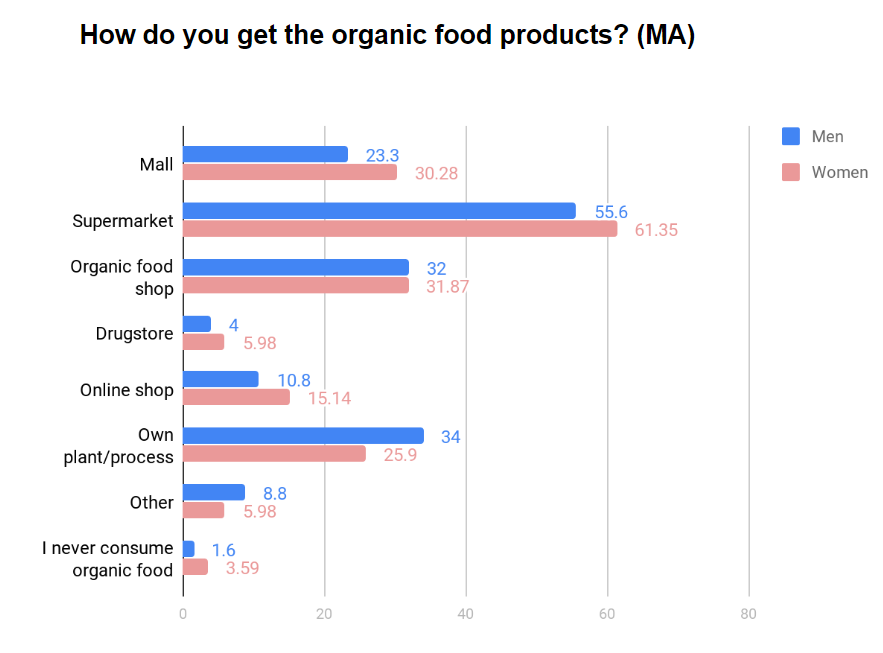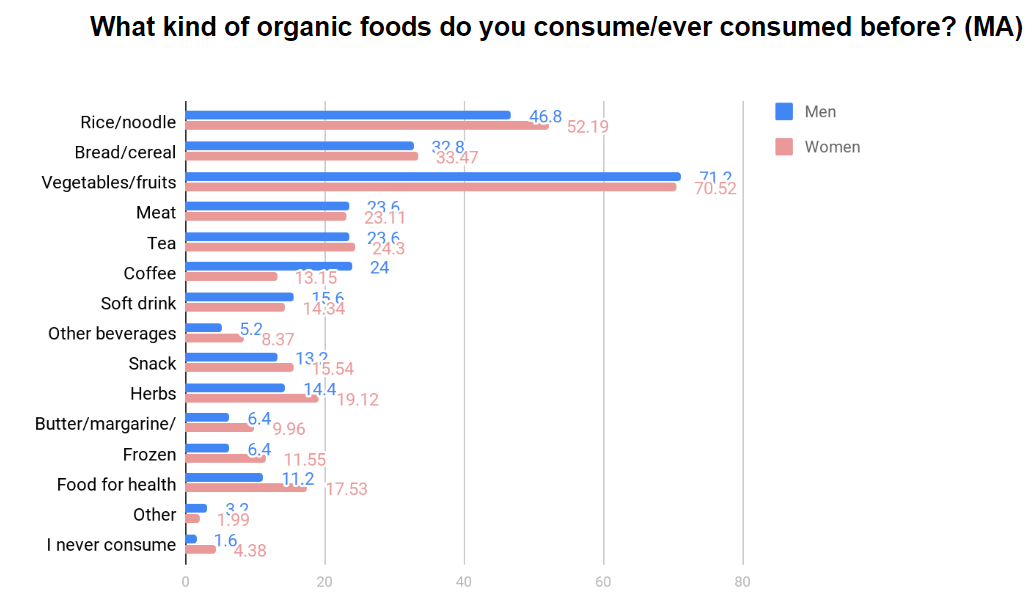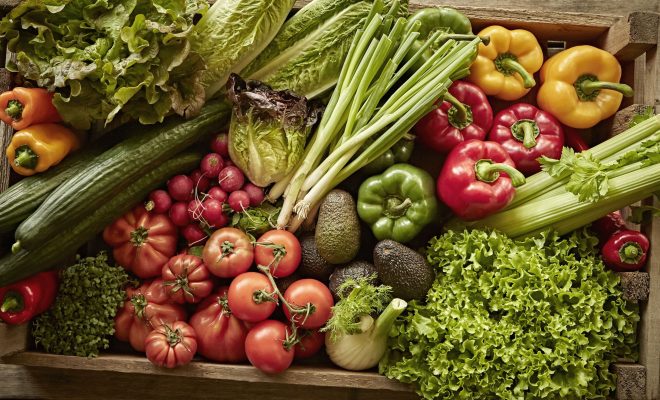As technology develops, the food choices begin to increase. Both the servings and the tastes are more varied. The choice is now limitless.
However, it doesn’t guarantee that the various foods offered are all good for our health. One of the food types that many people are very interested in and begin to consider now is organic food.
Let’s see the survey conducted by Licorice about organic foods in Indonesia below.
Survey period: June 21, 2019 – December 21, 2019
Respondents: 250 Indonesian men and 251 Indonesian women aged between 20-59 years old
 Organic food is quite popular in Indonesia, and it now has many followers. From the charts above, even though less than half of the respondents consume organic foods every day, it shows that 59.6% of males and 60.96% of females in Indonesia sometimes consume organic foods.
Organic food is quite popular in Indonesia, and it now has many followers. From the charts above, even though less than half of the respondents consume organic foods every day, it shows that 59.6% of males and 60.96% of females in Indonesia sometimes consume organic foods.
In Indonesia, the number of people consuming organic food continues to increase. The 2015 Indonesian Organic Agriculture Survey (SPOI) noted the number of organic food producers in Indonesia increased by around 56 percent compared to the previous year. Of course, increasingly healthy lifestyles are the main impetus for organic food increasingly sought.
In a discussion titled ‘Trends in Organic Consumption and Lifestyle in Indonesia’, Professor of Food Science and Technology from Bakrie University, doctor David Wahyudi, explained that the organic food movement had actually been around for a long time. However, in Indonesia, this lifestyle is just beginning to be popular.
 A lot more than half of the respondents from both categories state that the reason they consume organic foods is that they’re good for the body. Health and safeness are other important things to consider in consuming organic foods.
A lot more than half of the respondents from both categories state that the reason they consume organic foods is that they’re good for the body. Health and safeness are other important things to consider in consuming organic foods.
Organic foods such as fruits and vegetables are the most popular in Indonesia. Organic fruits and vegetables are believed to be healthier because they do not contain pesticides and are grown with natural fertilizers.
 Nowadays, organic food can be found anywhere. Less than half of the respondents say that they buy organic foods in organic food shops, malls, or online shops. The highest number of respondents from both categories get their organic foods from supermarkets.
Nowadays, organic food can be found anywhere. Less than half of the respondents say that they buy organic foods in organic food shops, malls, or online shops. The highest number of respondents from both categories get their organic foods from supermarkets.
However, some of the respondents also produce their own organic foods, and the number of males who plants and process their own organic foods is higher (34%) than the females (25.9%).
Organic food is believed to have a good effect on human health. Therefore, the majority of respondents claimed to want to provide organic food intake to their children.
Most of the respondents don’t have children. However, if they had children, around half of the respondents answer that they would sometimes give organic foods for their children. 38.8% male and 43.43% female respondents say that they will always give organic foods for their children.
 From the survey, it is shown that most Indonesians sometimes consume organic foods, and they tend to consume vegetables and fruit. Most of the time, they get their organic foods from supermarkets, rather than online shops or organic food shops.
From the survey, it is shown that most Indonesians sometimes consume organic foods, and they tend to consume vegetables and fruit. Most of the time, they get their organic foods from supermarkets, rather than online shops or organic food shops.
Furthermore, respondents who think organic foods are more safe and good for health, as well as the body, also consider giving their children some organic food.
Actually, the trend of organic food was started by farmers in Europe in the 1960s as a result of the Green Revolution. Farmers feel concerned about the use of pesticides and excessive use of chemical compounds in agricultural fields. This organic farmer movement is called organic generation 1.0.
Over time, this peasant movement gave birth to an agreement and a large organization was formed. From this then came the definition or understanding of organic and regulations related to organic eating.
Currently, in Indonesia, there is already a lot of rice, fruits and vegetables, chicken, eggs, milk, and yogurt that fall into the category of organic food products. In addition, there are also still honey, coffee, and vanilla which also includes organic food.
In conclusion, most Indonesians have tried to consume organic food. Usually, they choose to consume organic food because they feel concerned about health.
Organic food is believed to have a good effect on the human body. Therefore, the majority of respondents said they wanted to give their children organic food intake.

















No comments yet.